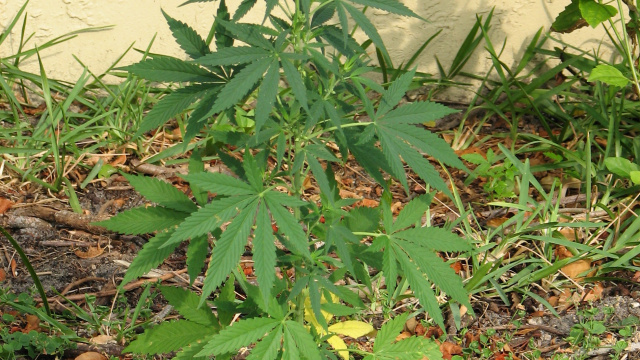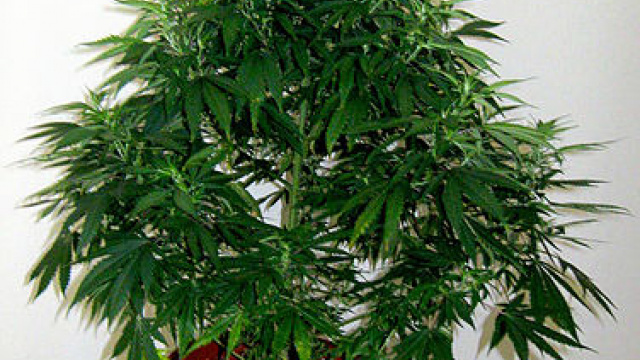 Campaigns to become the first U.S. states to legalize marijuana for recreational use in Washington and Colorado have raised $3 million ahead of a November vote, far outpacing the opposition.
Campaigns to become the first U.S. states to legalize marijuana for recreational use in Washington and Colorado have raised $3 million ahead of a November vote, far outpacing the opposition.
Proponents of pot legalization in Washington state have raised nearly $2 million since the initiative qualified for the ballot in January, and about $1 million in Colorado since its measure earned a place on the ballot the following month, according to the most recent state campaign figures.
In Oregon, where a voter referendum qualified in July, the legalization campaign reported less than $1,000 in contributions. All three state measures go on the ballot in November, when Americans vote for president and other offices.
With their war chests, backers of legalization drives in Washington state and Colorado have already bought television ads in a bid to convince voters, especially those who have never smoked pot, of merits of legalizing and taxing it.
Legalizing the drug for recreational purposes would run afoul of the federal government, which says that marijuana is a dangerous narcotic.
The referendums in the three Western states, among the 17 that already allow marijuana for medical purposes, comes as some states battle with the federal government over its raids of medical marijuana dispensaries.
“If one of these initiatives wins, it will really be a breakthrough,” said Ethan Nadelmann, executive director of the Drug Policy Alliance, which seeks alternatives to the current U.S. policy to combat drug use.
“And in the end, just as there has been a federal-state conflict involving medical marijuana, we anticipate there will be similar conflicts when states begin to legally regulate marijuana like alcohol,” he said. “But the only way we think change can happen is through this process.”
Polls indicate support in Colorado and Washington for legalizing pot.
A July poll by Survey USA of 630 registered voters in Washington state said 55 percent backed the marijuana legalization ballot measure. The margin of error was 4 percent.
Rasmussen Reports said its June poll of likely Colorado voters showed 61 percent supported legalizing and regulating pot. The survey had 500 respondents and a margin of 4.5 percent.
Billionaire Peter Lewis, the Ohio-based chairman of Progressive Insurance who helped finance successful state-level campaigns for medical marijuana, has emerged as the Washington state legalization measure’s largest supporter with total contributions this year of $875,000.
A representative for Lewis declined requests for comment.
Drug Policy Action, a group related to New York-based Drug Policy Alliance, has given $600,000 this year to the Washington legalization campaign.
The Washington, D.C.-based Marijuana Policy Project has given the two registered groups behind the Colorado campaign most of their roughly $1 million in funds, state records show. Lists of donors to Marijuana Policy Project and Drug Policy Action are not publicly available.
Legal at 21
The ballot measures in all three states would legalize marijuana for people 21 and older, impose state-level taxes on the drug and allow sales of the drug at special pot stores.
A representative for the U.S. Justice Department had no comment in response to multiple requests. The Obama administration’s Office of National Drug Control Policy has argued that pot use is associated with addiction, respiratory disease and cognitive impairment.
“One of the canards the other side puts out is that keeping marijuana, even in small amounts, illegal is essentially equivalent to a modern day prohibition for alcohol, which is a total joke,” said Cully Stimson, chief of staff for the conservative Heritage Foundation, which opposes legalization.
Stimson said having only a couple drinks a day is healthy. “With marijuana use, the purpose is to get high,” he said.
Despite such arguments, opponents of legalization have so far fallen short in fundraising. State campaign figures show that Smart Colorado has raised the most of any anti-legalization group, but its 2012 total stands at less than $40,000.
Holcomb said her pro-legalization group bought more than $1 million in TV air time in Washington state this month.
In Colorado, the Campaign to Regulate Marijuana Like Alcohol spent $800,000 for fall season television ads, said Mason Tvert, co-director of the group.
Editing by Vicki Allen
Source: Reuters (Wire)
Author: Alex Dobuzinskis, Reuters
Published: August 25, 2012
Copyright: 2012 Thomson Reuters



Leave a Reply